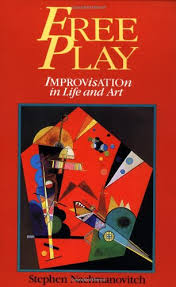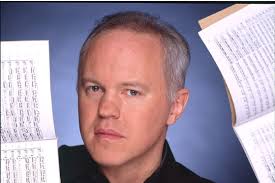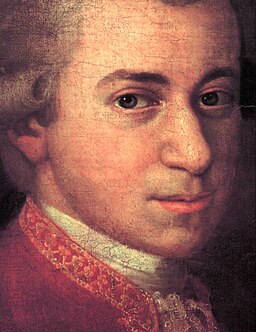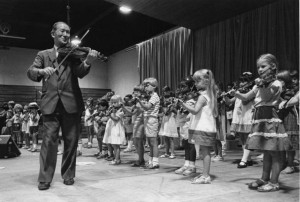 What is the source of a creative idea? What is the link between art and spirituality? How can we unlock our inner muse, find joy in the creative process and unleash the full potential of our imagination? Stephen Nachmanovitch’s book, Free Play: The Power of Improvisation in Life and the Arts delves into these questions. Nachmanovitch is an improvisational violinist and violist, computer artist and teacher. Musicians and non-musicians alike will find his book meaningful, inspiring and thought provoking.
What is the source of a creative idea? What is the link between art and spirituality? How can we unlock our inner muse, find joy in the creative process and unleash the full potential of our imagination? Stephen Nachmanovitch’s book, Free Play: The Power of Improvisation in Life and the Arts delves into these questions. Nachmanovitch is an improvisational violinist and violist, computer artist and teacher. Musicians and non-musicians alike will find his book meaningful, inspiring and thought provoking.
Nachmanovitch stresses that improvisation is not chaotic, but flows from a natural formal structure:
[quote]We carry around the rules inherent in our organism. As living, patterned beings, we are incapable of producing anything random. We cannot even program a computer to produce random numbers; the most we can do is create a pattern so complex that we get an illusion of randomness. Our body-mind is a highly organized and structured affair, interconnected as only a natural organism can be that has evolved over hundreds of millions of years. An improviser does not operate from a formless vacuum, but from three billion years of organic evolution; all that we were is encoded somewhere in us.[/quote]
Nachmanovitch also highlights the common threads which run through music, dance, visual art, literature and religious traditions. He shows that life and art are inseparable. Michelangelo believed that the statue already existed and that his job was simply to carve away the excess stone. Nachmanovitch suggests that:
[quote]As stone is to a sculptor, so time is to a musician. Whenever he gets up to play, the musician stands there facing his own unsculpted block of time.[/quote]
Nachmanovitch stresses the ephemeral aspect of improvisation and the spontaneous creative impulse:
[quote]The fact that improvisation vanishes makes us appreciate that every moment of life is unique-a kiss, a sunset, a dance, a joke. None will ever recur in quite the same way. Each happens only once in the history of the universe.[/quote]
To learn more about Nachmanovitch and his work, visit his website, listen to this podcast and watch this short interview:
[quote]If you forget yourself , you become the universe.[/quote]
-Hakuin Ekaku
[button link=”https://www.amazon.com/Free-Play-Improvisation-Life-Art/dp/0874776317″]Find on Amazon[/button]

 There’s an interesting irony at the heart of musical performance. As musicians, we spend countless hours in the practice room in order to achieve the highest level of technical control. Technical assurance gives us the freedom to let go, enter “the zone” and allow the music to come to life. We cherish the rare, exhilarating performances which rise above “good” or “technically solid” and tap into a higher energy. At these moments the music almost seems to be playing the musician. Discovering the ability to let go and overcome ego is a lifelong challenge for all of us.
There’s an interesting irony at the heart of musical performance. As musicians, we spend countless hours in the practice room in order to achieve the highest level of technical control. Technical assurance gives us the freedom to let go, enter “the zone” and allow the music to come to life. We cherish the rare, exhilarating performances which rise above “good” or “technically solid” and tap into a higher energy. At these moments the music almost seems to be playing the musician. Discovering the ability to let go and overcome ego is a lifelong challenge for all of us.

 Timing is an important element in music as well as comedy. A great comedian knows how to build up to the punch line of a joke . Similarly, great composers have an intuitive understanding of proportion in music. They know how long to repeat an idea before moving on. They allow the music to unfold organically in a way that seems “right”, as if the piece is composing itself.
Timing is an important element in music as well as comedy. A great comedian knows how to build up to the punch line of a joke . Similarly, great composers have an intuitive understanding of proportion in music. They know how long to repeat an idea before moving on. They allow the music to unfold organically in a way that seems “right”, as if the piece is composing itself.
